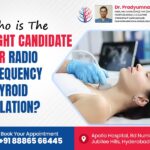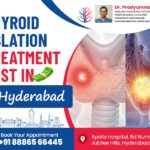Best Varicose Veins Treatment in Hyderabad
Get the Best Varicose Veins Treatment in Hyderabad by Dr Pradyumna Reddy, Leading Varicose Veins Specialist in Hyderabad with over 7 years of experience. He successfully performed no of varicose veins surgeries through laser treatment and other surgical procedures.

Varicose veins – they are also called varicosities. This is a medical condition when your veins become swollen, twisted, and overfilled with blood. Any superficial vein might convert into a varicose vein, but the veins in your legs and feet are most commonly affected. Sometimes they are surrounded by flooded capillary patches called spider veins and are considered as superficial varicose veins.
This condition occurs if the veins’ valves allow ineffective blood flow or flow the blood in the wrong direction(reverse) due to improper functioning.
Symptoms Of Varicose Veins
In most of the cases, varicose veins don’t cause any discomfort; they might be just a cosmetic glitch. The signs that you are having varicose veins include:
- Discolouration of veins – dark purple or blue in colour
- Highly visible due to swelling and twisting of veins, often looks like cords on your legs.
In some cases, they are painful, and the signs and symptoms include:
- Painful legs
- Heavy feeling in your legs, especially night time
- Burning and throbbing sensation
- Muscle cramps and swelling of lower legs
- Pain increases after sitting or standing for more time
- Itching around your veins
- Lipodermatosclerosis
- Swollen ankles
- Venous eczema (stasis dermatitis)
- Skin colour changes around the varicose vein
- Irresistible urge to move your legs(Restless legs syndrome)
Spider veins and varicose veins share some similarities, but they are different. Spider veins look in red or blue colour and appear closer to the skin surface. Spider veins often look like a spider’s web; they vary in size and commonly found on the face and legs.
What Are The Causes Of Varicose Veins?
When the valves of the vein become weak or damaged, they allow blood to flow in one direction, i.e., prevent the blood from flowing back to the heart. When this happens, blood starts to accumulate in your veins and starts to enlarge or swell.
Some of the potential risk factors of varicose veins are:
- Pregnancy
- Menopause
- People of age above 50
- People who are standing for long periods
- Obesity
- Hereditary (family history of varicose veins)
Chronic constipation, injuries that damage the valves in the veins, and in rare cases, tumours can cause varicose veins.
Treatment For Varicose Veins
Usually, varicose veins might not require special treatment unless they are severe. But don’t ignore the condition. Consult a doctor and take basic treatment. They might also suggest some home remedies to reduce discomfort.
However, our expert doctor mentioned some of the common treatment options for this condition:
Self-care: Unfortunately, there is no preventive treatment to stop new veins from becoming varicose. But self-care can help to ease discomfort and prevents the varicose veins’ condition from becoming severe.
- Exercising regularly
- Losing excess weight
- Stop wearing tight-fitting clothes
- Elevating your legs while sleeping
- Avoid standing or sitting for a long time
The above home remedies can ease pain and prevent the condition from worsening.
Compression stockings: Most of the doctors suggest wearing compression socks(stockings) all day long as the first line of treatment before moving to other treatments. These socks exert pressure on your legs and help to flow back the blood to your heart. They also reduce swelling.
The compression level varies, and you should use the compression stockings as recommended by the doctor. These compression stockings are available in medical supply stores and pharmacies.
Other treatments for severe varicose veins
If the condition doesn’t respond to self-care treatment or if it is worsening, one of the below varicose vein treatments might be suggested:
Sclerotherapy: In this procedure, a chemical solution or foam is injected into small varicose veins. The solution scars and closes the veins to stop the transportation of blood. The chemical might be injected more than once in the same vein.
Foam sclerotherapy of large veins: large varicose veins can also be closed by injecting foam solution. Sclerotherapy gives effective results if done correctly.
Radiofrequency Ablation: In this procedure, a thin tube called a catheter is inserted into the varicose vein, and the tip of the catheter is heated by either radiofrequency or laser energy. The heat destroys and closes the vein when pulled out. This procedure is mostly preferred to treat large varicose veins.

Laser treatment: it is a new technology to seal varicose veins and spider veins. A high energy light beam is focussed onto the vein, which makes it fade and disappear gradually. Multiple treatment sessions are required and used to treat the small varicose veins.
Varicose veins that occur at the time pregnancy subsides without any medical treatment within a few months post-delivery. To get more information about treatment for varicose veins, contact Dr. K Pradyumna Reddy, one of the best Interventional Radiologists in Hyderabad. He has more than five years of experience in treating varicose veins.






